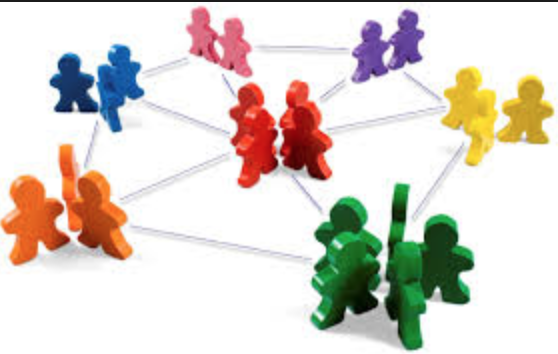
“Personal relationships are the fertile soil from which all advancement, all success, all achievement grows
Ben Stein
Last week’s thoughts encouraged businesses and organizations to consider taking time yearly to reflect on the “State of the Organization”. It is equally important that we also take time to reflect on “The State of Our Relationships”. John Maxwell addresses this idea in his post, “Tis the Season for Reflecting on Relationships.” Maxwell contends that relationships are much like the parties we attend during the holiday season; there are those that we look forward to and want to attend because they will bring us happiness and joy. Likewise there are those that just suck the life out of us, but we must attend them because we feel a sense of obligation. Maxwell suggests that there are three essential questions we should consider when reflecting on the relationships we have developed with those who, through our daily interaction with them, serve to shape our lives
- The Thinking Question: What kind of thinking drives the relationship; abundance thinking, realistic thinking, or negative thinking? The first two see life through a lens of possibility. Abundance thinkers always expect and pursue the best possibility. Realistic thinkers have the ability to see all possibilities, weigh them equally, and pursue the best one for the situation. Negative thinkers look for the worst possible outcomes. Like it or not, we have a tendency to mimic the thinking of the people we spend the most time with, so it’s important to be around positive and realistic thinkers.
- The Value Question: Do the relationships add or subtract value to your life? Do they add value to you at least as much as you add value to them, or do they mostly take from you? You can’t completely avoid people who drain you, but it is critical that you spend as much time as possible with those who recharge you.
- The Action Question: Do those with whom you have the relationship do what they say? Do they take action on what they talk about? Idea people are good, but ideas without action are useless. People who follow through show you who they really are, through the things they are committed to, passionate about, and willing to work toward.
Reflecting on the “State of Your Relationships” is important, but equally important is the action that follows the reflection. A valued relationship is a two-way street. It grows in value through nurturing. John Sharry’s recent post in the Irish Times, “The Importance of Relationships and Belonging” proposes that being proactive in our personal relationships and attending to them (even when we don’t feel like it) will enable them to flourish. To that end he suggests 6 simple actions that will serve to to keep your relationships positive, supportive and personally satisfying.
- Take Time: Make sure to spend regular time with your partner, children, family and friends. Assuring that it is one-to-one, relaxed, and free from interruptions will give you the time to needed to talk, have fun, and reconnect. These simple actions will serve to strengthen the relationship.
- Be Present: In our busy lives, a major challenge is simply not being present with those important to us. Turn off the phone, forget the email. This is the time to focus, listen, and be there for someone who values a relationship with you.
- Express Appreciation: Relationships are nurtured by displays of appreciation and gratitude. Whether these are simply kind words of thanks to an important colleague, a gift to a friend, affection with your partner, or a reassuring hug for a child, everyone needs to be appreciated and nurtured in close relationships.
- Listen: Listening is the most important communication skill of all. Taking time to understand the other person’s point of view is key to connecting with them, and is especially important as the first step to managing the conflict which every relationship will have from time to time.
- Communicate: Relationships suffer when one person does not communicate about their needs and important issues or when they do, they do it do it in an aggressive, explosive or disrespectful manner. Learning to talk respectfully and honestly is an important communication skill.
- Apologize and Forgive: All close relationships will involve disappointment and getting hurt at times. Taking responsibility and apologizing, when you have hurt someone and moving on and forgiving when you have been hurt, are key to maintaining relationships through hard times.
How are the State of your Relationships? It’s important that we spend the most time and energy on relationships that energize and add to our lives. Don’t be afraid to pull back from unhealthy relationships, or to eliminate them altogether. It’s equally important that we nurture those relationship that bring value to our lives. What we get out of life is proportional to what we give. No less is true about our relationships. Remember, to reach our potential, we need more people in our life who are pulling for us, than on us.
Embrace the Challenge
